How Mobile Apps Are Enabling the Future of Smart Cities
6 April 2025
The future is here, and it’s smart. As cities around the world continue to evolve, one thing is clear: mobile apps are playing a huge role in shaping the cities of tomorrow. But how exactly are these handy little apps transforming the urban landscape? Let’s dive in and explore the fascinating ways mobile apps are enabling the future of smart cities.
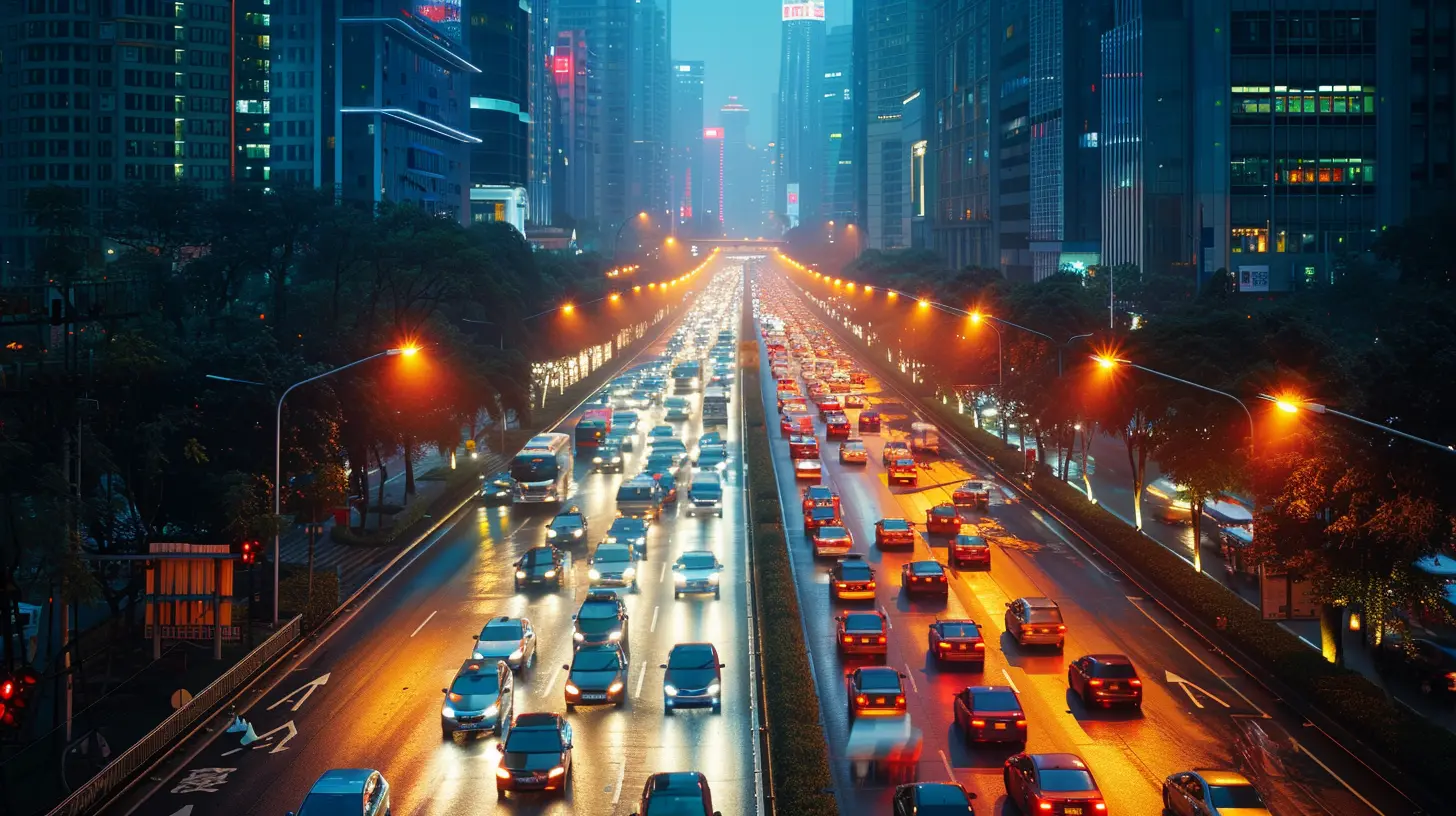
What Are Smart Cities?
Before we get into how mobile apps are changing smart cities, we need to take a moment to understand what a smart city actually is. In simple terms, a smart city uses technology and data to improve the quality of life for its residents. Think of it as a city where technology and innovation are woven into the fabric of everything—from transportation to energy, from waste management to healthcare.But, let’s be real. Smart cities aren’t just about high-tech gadgets and data centers. They’re about making life easier, smoother, and more efficient for the people who live in them. And that’s where mobile apps come in.
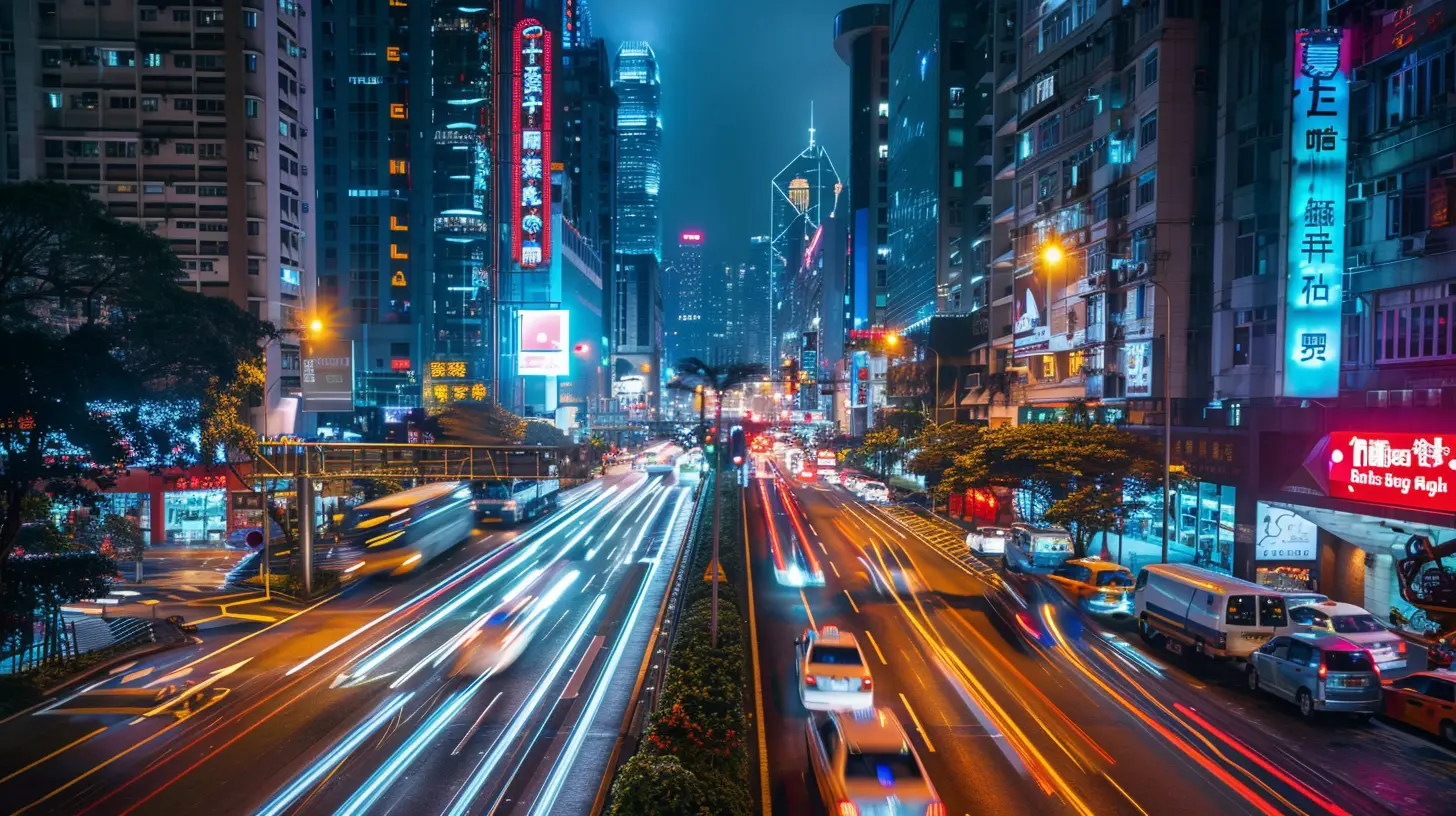
The Role of Mobile Apps in Smart Cities
Smart cities might sound like something straight out of a sci-fi movie, but they’re very real and very now. And one of the key drivers behind these futuristic cities? Yep, you guessed it—mobile apps. These apps are doing so much more than just helping us check the weather or order food. They’re becoming essential tools for making cities smarter, more sustainable, and more livable.1. Smart Transportation and Mobility Apps
If you’ve ever used an app to check bus schedules, book a ride, or rent a bike, you’ve already experienced a taste of how mobile apps are revolutionizing transportation in smart cities. Gone are the days when you had to wait at a bus stop with no idea when the next bus would show up. Now, with just a few taps on your phone, you can know exactly when the next bus, train, or tram is arriving.But it doesn’t stop there. Many cities are leveraging mobile apps to create integrated mobility systems that allow users to seamlessly hop between different modes of transport—whether it's public transit, ride-sharing, or even electric scooters. For example:
- Uber and Lyft offer ride-hailing services that are fully integrated with city transportation systems.
- Lime and Bird provide electric scooters that can be rented via mobile apps, offering a quick and eco-friendly way to get around.
- Citymapper combines all modes of transport (public transit, bikes, ride-hailing) in a single app, helping users plan the most efficient route across town.
These apps not only save time, but they also reduce traffic congestion and lower carbon emissions. Imagine a future where fewer cars are on the road and more people are relying on shared, electric, and eco-friendly modes of transportation—all coordinated by mobile apps. Sounds like a win-win, right?
2. Smart Energy Management Apps
Energy is the lifeblood of any city, and managing it efficiently is key to creating a smart city. This is where mobile apps come in. Many cities are implementing smart grids—advanced systems that monitor energy usage in real-time and optimize energy distribution. Residents and businesses can use mobile apps to monitor their electricity consumption, get alerts about peak times, and even remotely control their appliances.For instance, apps like Google Nest allow users to control their home’s temperature, lighting, and even security systems from their mobile phones. This not only helps individuals save on their energy bills but also contributes to the overall energy efficiency of the city.
And let’s not forget about renewable energy. Some apps let users track the energy generated by solar panels or wind turbines. Imagine a city where every building has its own renewable energy source and you can monitor how much energy is being produced and consumed—all through an app. That’s the future of smart cities.
3. Waste Management and Recycling Apps
Let’s face it—waste management isn’t the most glamorous topic. But it plays a crucial role in making cities sustainable. Smart cities are using mobile apps to revolutionize how waste is collected, sorted, and recycled.Some cities now have smart bins that use sensors to detect when they’re full and automatically notify waste management services via a mobile app. This makes waste collection more efficient and reduces unnecessary trips for garbage trucks, cutting down on both fuel costs and carbon emissions.
Apps like RecycleNation help residents figure out what can be recycled and where. Imagine an app that tells you exactly which bin to put your waste in, and even tracks how much you’ve recycled over time. It’s like having a personal waste management assistant in your pocket!
4. Smart Healthcare and Public Safety Apps
The health and safety of residents are top priorities for any city, and mobile apps are stepping up to the plate in a big way. In smart cities, mobile apps are being used to improve access to healthcare services, provide real-time information during emergencies, and even predict and prevent accidents.For example, apps like Doctor on Demand allow residents to consult with healthcare professionals without ever leaving their homes. This is especially useful in densely populated urban areas where hospitals can be overwhelmed. In some smart cities, mobile apps are integrated with city hospitals and clinics, allowing users to book appointments, access medical records, and receive notifications about vaccinations and health screenings.
When it comes to public safety, many cities are using mobile apps to report incidents, track crime patterns, and dispatch emergency services. Apps like PulsePoint allow users to receive real-time notifications about accidents or fires in their area, and even offer instructions on how to provide first aid while waiting for emergency responders.
5. Smart Governance and Citizen Engagement Apps
Governments are often seen as slow-moving and bureaucratic, but mobile apps are helping to change that. In smart cities, citizens can use apps to engage with local governments in ways that were never possible before. From reporting potholes to participating in city planning, mobile apps are making it easier for residents to have a voice in how their city is run.For example, apps like SeeClickFix allow residents to report non-emergency issues like graffiti, broken streetlights, or damaged sidewalks. The app then forwards the report to the appropriate city department, and users can track when the issue is resolved.
Some cities are even using mobile apps to gather feedback from residents on proposed policies or urban development projects. This kind of citizen engagement helps create more inclusive and responsive governance, which is a hallmark of any smart city.
6. Smart Environmental Monitoring Apps
As cities grow, so does the need to monitor environmental factors like air quality, water quality, and noise pollution. Mobile apps are playing a big role in helping cities keep tabs on their environmental health.Apps like AirVisual provide real-time air quality data, allowing residents to know when it’s safe to go for a jog or take the kids to the park. In some cities, this data is collected by sensors placed around the city and then integrated into mobile apps, providing a comprehensive view of environmental conditions.
In addition, some mobile apps allow users to report environmental issues, such as illegal dumping or hazardous waste, directly to city authorities. This makes it easier for cities to respond quickly to environmental threats and keep residents safe.
7. Smart Retail and E-commerce Integration
Let’s not forget about the retail and e-commerce sector. With the rise of smart cities, mobile apps are changing the way we shop. Many cities are integrating mobile apps into local stores and services, allowing residents to shop, order groceries, or even get their laundry done—all through mobile apps.Apps like Instacart and Amazon Fresh allow users to shop for groceries online and have them delivered right to their doorsteps. Some smart cities are even experimenting with autonomous delivery drones or robots, which can be summoned via mobile apps to deliver goods quickly and efficiently.
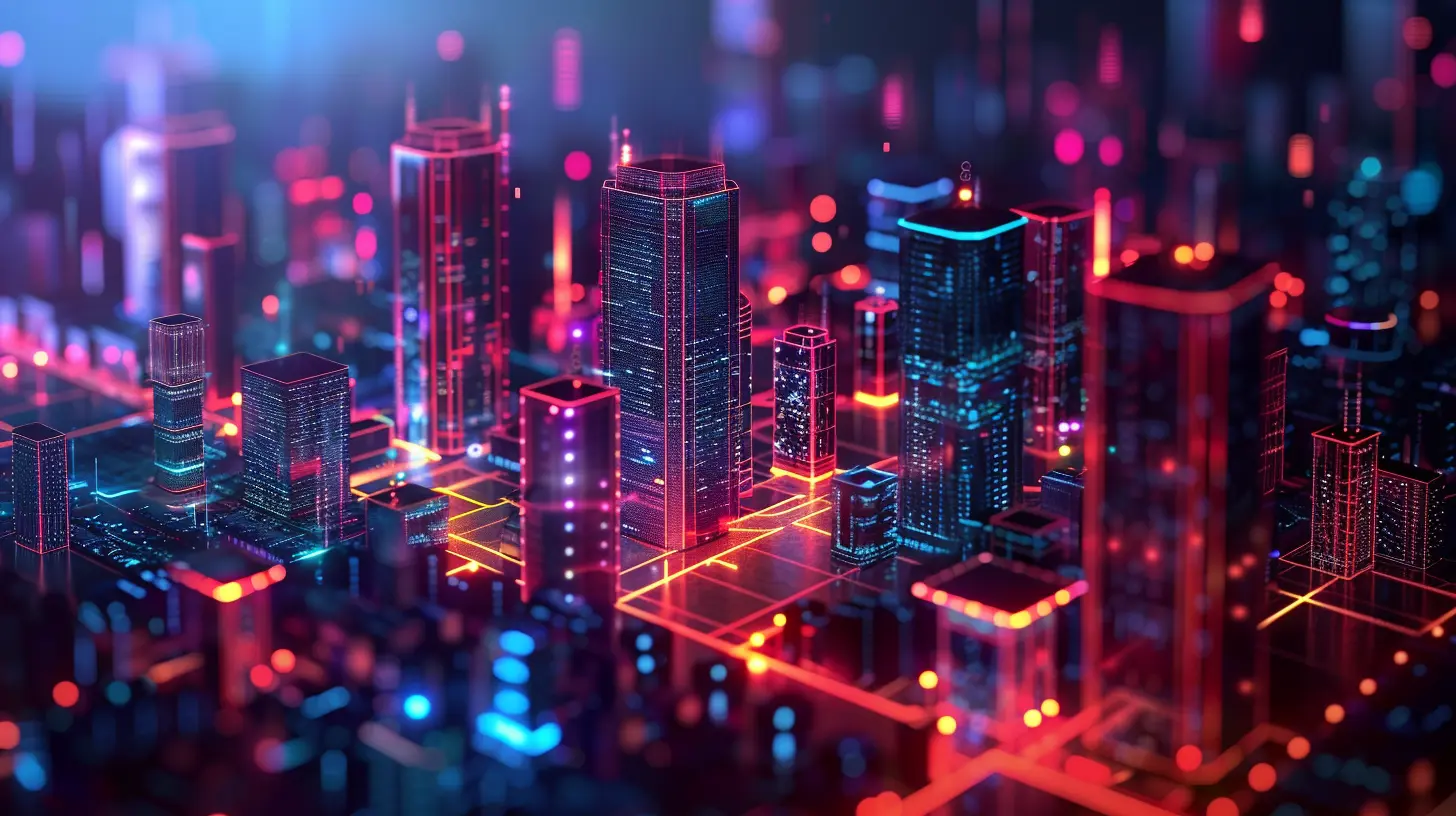
The Challenges of Implementing Mobile Apps in Smart Cities
Of course, building a smart city isn’t all sunshine and rainbows. There are challenges that come with integrating mobile apps into urban infrastructure. Security and privacy are two of the biggest concerns. With so much data being collected, it’s essential that cities protect this information from hackers and ensure that residents’ privacy is respected.Additionally, there’s the issue of digital inclusion. Not everyone has access to a smartphone or knows how to use mobile apps effectively. If smart cities are going to work for everyone, they need to ensure that these tools are accessible to all residents, regardless of age, income, or tech-savviness.
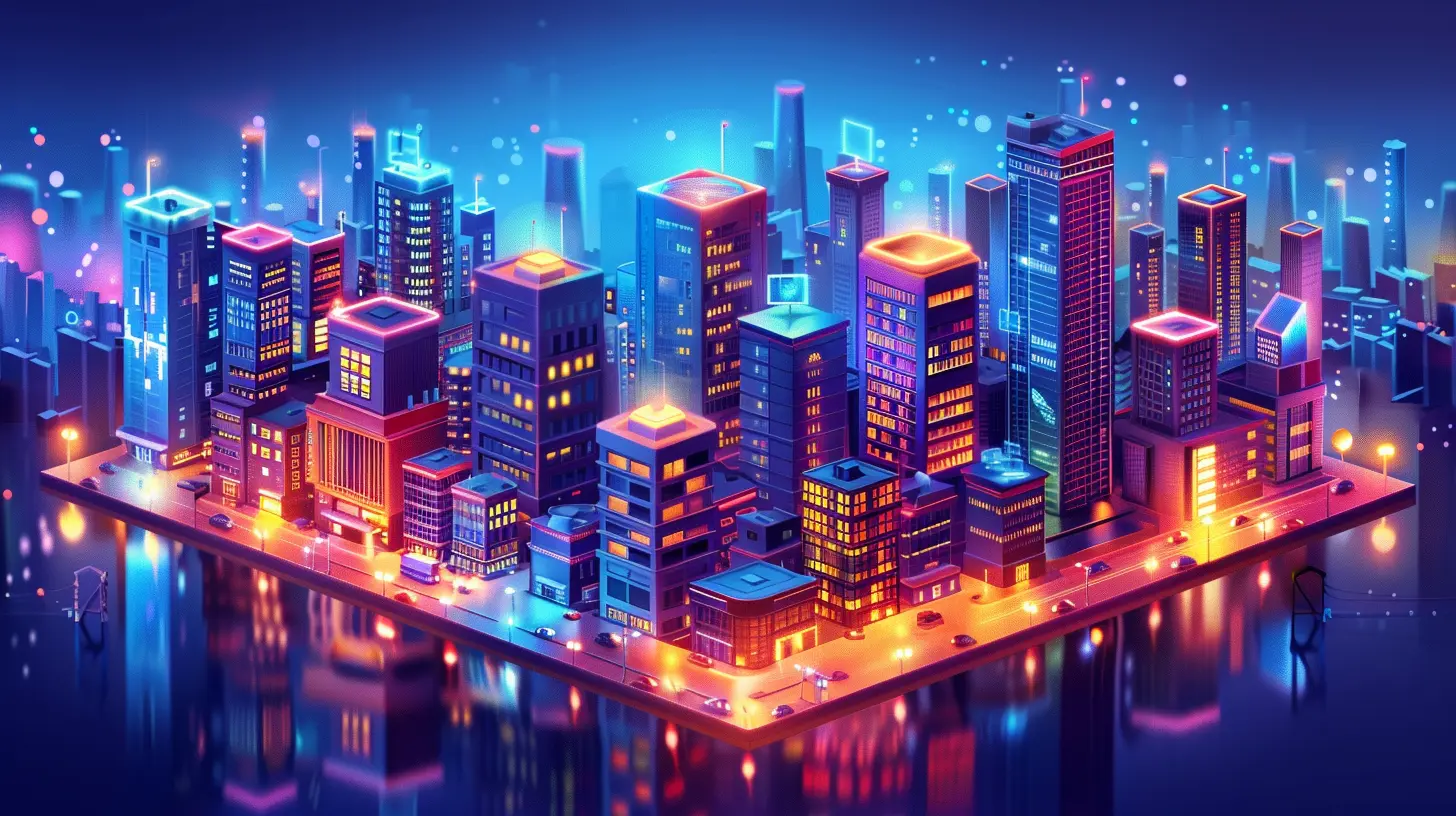
Conclusion
Mobile apps are more than just a convenience—they’re the backbone of smart cities. From transportation to healthcare, from energy management to public safety, these apps are helping cities become more efficient, sustainable, and livable. As cities continue to grow and evolve, mobile apps will play an even bigger role in shaping the future of urban life.So next time you open an app to check the bus schedule or adjust your thermostat, take a moment to appreciate how much these little pieces of software are doing to make our cities smarter—and our lives easier.
all images in this post were generated using AI tools
Category:
Mobile AppsAuthor:

Ugo Coleman
Discussion
rate this article
7 comments
Zevin Horne
Great insights! Excited to see how mobile apps shape our smart city future!
May 2, 2025 at 4:31 AM

Ugo Coleman
Thank you! I'm excited to see the impact as well!
Iris Barker
Great insights! Excited to see how mobile apps will transform urban living in smart cities!
April 19, 2025 at 7:18 PM

Ugo Coleman
Thank you! I share your excitement about the transformative potential of mobile apps in shaping urban living.
Aubrey McLanahan
This article effectively highlights how mobile apps are crucial for developing smart cities, enhancing connectivity and efficiency while improving residents' quality of life. Well done!
April 17, 2025 at 5:06 AM

Ugo Coleman
Thank you for your positive feedback! I'm glad you found the article insightful.
Tracie McFarlin
Mobile apps are pivotal in shaping smart cities, yet their success hinges on seamless integration, user privacy, and robust infrastructure.
April 15, 2025 at 8:29 PM

Ugo Coleman
Thank you for highlighting these crucial aspects! Seamless integration, user privacy, and robust infrastructure are indeed fundamental to the success of mobile apps in smart city development.
Amira McGinn
Mobile apps are crucial for smart cities, enhancing connectivity, streamlining services, and improving resource management for a sustainable urban future.
April 13, 2025 at 4:54 AM

Ugo Coleman
Thank you for your insightful comment! I completely agree; mobile apps play a vital role in driving connectivity and efficiency in smart cities.
Leona Adams
This article beautifully highlights the transformative power of mobile apps in shaping smart cities. It's inspiring to see technology enhancing urban living and connecting communities in such innovative ways. Thank you for sharing!
April 12, 2025 at 8:49 PM

Ugo Coleman
Thank you for your kind words! I'm glad you found the article inspiring. Mobile apps truly are a game-changer for smart cities and community engagement.
Vera Green
Mobile apps are crucial for smart cities, enhancing efficiency, connectivity, and overall urban living.
April 8, 2025 at 3:19 AM

Ugo Coleman
Absolutely! Mobile apps play a vital role in smart cities by streamlining services, improving communication, and enhancing the quality of life for residents.
MORE POSTS

Why Battery Tech Innovations Are Key to the Future of Mobile
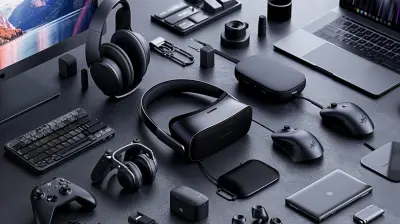
The Best Accessories for Streamlining Your Workflow

Understanding VoIP: The Next Step in Telecommunication Evolution

Desk Accessories That Maximize Comfort and Efficiency

Power Banks That Keep You Fully Charged on the Go
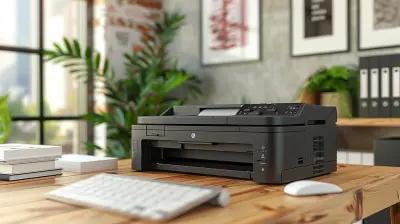
Choosing the Right Printer for Your Home Office